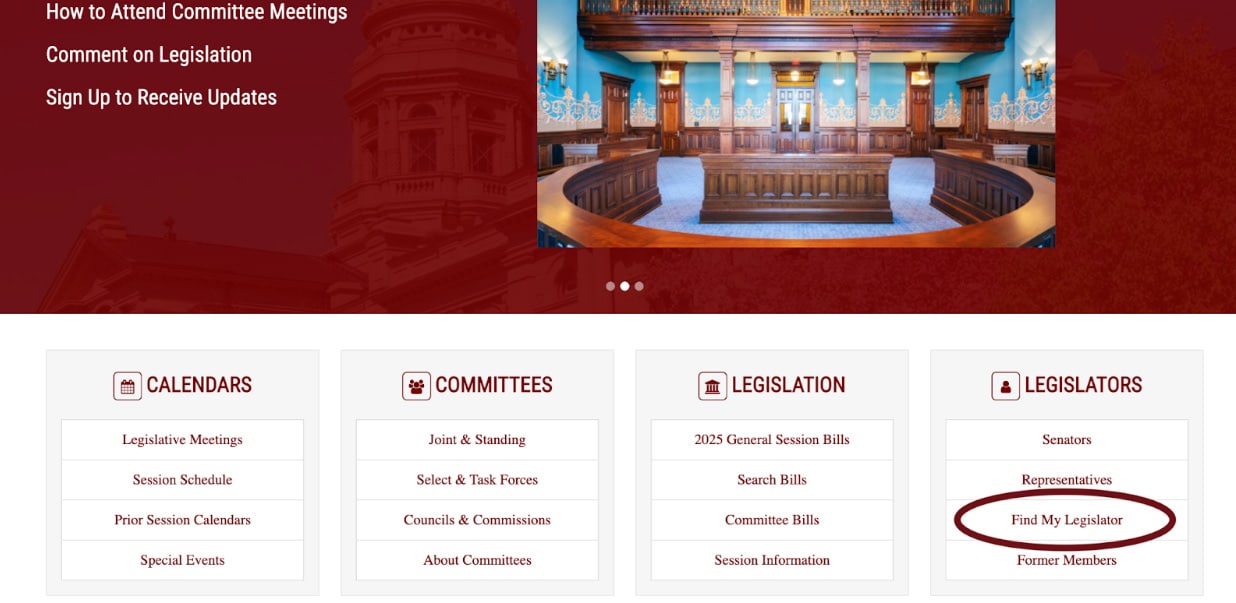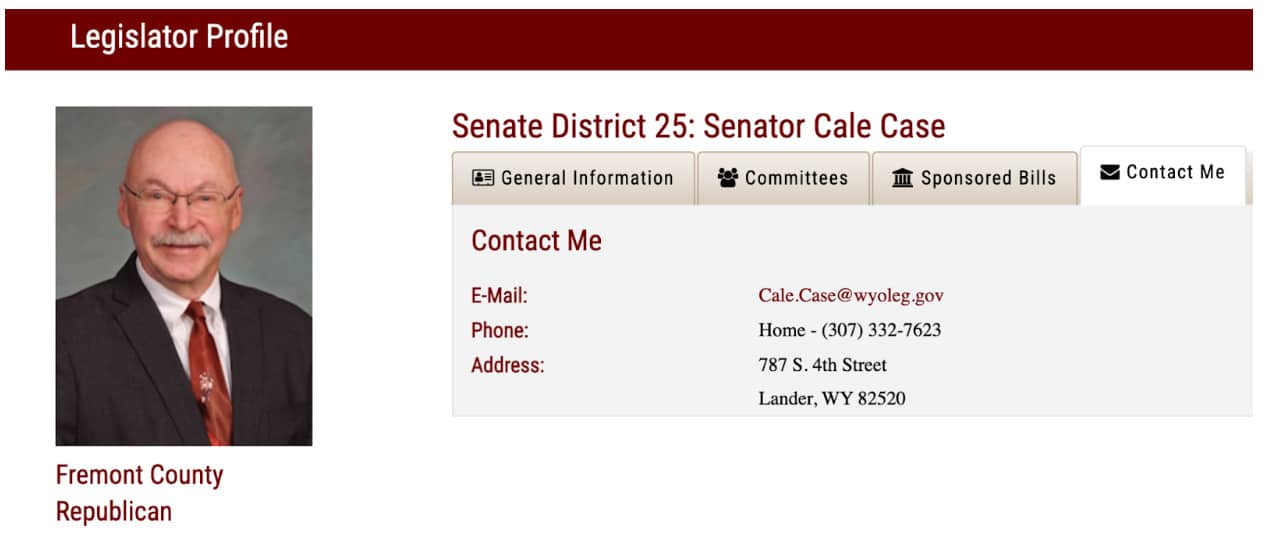Wading into civic engagement can be daunting, but it doesn’t have to be! Here in Wyoming, we have a citizen legislature. That means your representatives and senators are members of your communities that have families, jobs, and homes near you. They’re not professional politicians, which makes them more accessible for Wyoming citizens. It also means they do not have paid staff, or a lot of time to work on legislation most of the year. That can be a challenge, but it also means that your input is important! Your voice matters to your legislators.
There are a few best practices to follow when reaching out to legislators to be as effective as possible, so we decided to put together a brief “how to” guide on reaching out and making your voice heard during this legislative session.
Finding Your Legislator
Every citizen in Wyoming is represented by one representative in the House and one senator in the Senate. The wyoleg.com website has a tool that can help you find out who your legislators are if you aren’t sure. To find them, scroll to the bottom of the homepage on www.wyoleg.gov
At the bottom right corner of the page, click “Find my Legislator.”

On the “find my legislator” page, you can click between House and Senate districts at the top of the map. To find your representative or senator, simply type your address into the “find an address or place” bar at the top left. Once you have typed in your address, your Senator or Representative will pop up when you scroll over your address. This will provide the contact information for your legislator, including their phone number and email address.
If you already know your Senator or Representative, you can simply navigate to the list of Senators and Representatives in the same bottom right corner of the homepage and click on their name on the list. This will take you to their “legislator profile,” where you can view their contact information, years of service, bills sponsored, and committees they have been assigned. Shown here is an example of Senator Cale Case, who represents much of the Lander area, where our headquarters is located!

What Now?
Once you’ve found the legislator you want to contact, you need to think about how to contact them and what to say. If your legislator has a cell phone number listed, you could choose to text or call. In a text, keep your message short and sweet. State what you would like them to do, such as, “Vote no on HB0186,” briefly explain why, and thank them for their time. In a phone call, do the same! Legislators are busy, so feel free to leave a brief voicemail if they are not able to answer.
If you decide to send an email, you can include more information, but always put your ask in the subject line! Legislators are often receiving over a hundred emails every day. They try to keep up, but sometimes they don’t have time to read through every single one. Putting a short ask like, “Vote yes on SF0088-2025 Large Project Funding” lets them know that one of their constituents is in favor of that particular bill. If they get 30 or 40 emails on the subject, that can help give them an idea of how their district feels about the bill, even without the details.
Throughout the session, many organizations put out form letters to send to legislators. They can be a useful time-saver for our busy lives, but receiving dozens of identical form letters doesn’t make the same statement that individual folks make when they personalize their stories. If you need help figuring out what to say, we recommend pulling out the main points of these letters, then drafting your own email that highlights what is most important to you. Introduce yourself, explain why the issue is important to you, pull language from other sources if needed, then make your ask. An individualized email always makes a bigger impression than a form letter.
Finally, in any communication, it is important to address the policy, not the person. Wyoming is a small state, and someone who is an adversary in one arena might be an ally in another. Make sure that you are making points about why you disagree with a policy or why a policy is necessary, rather than resorting to personal arguments or attacks. Being involved in our legislative process is an immense undertaking, whether someone is a legislator, paid lobbyist, or a private citizen. It can be exhausting to keep up, but we have to remember that we are all involved because we care deeply about Wyoming. If we keep that in mind, we can move our state forward together.
